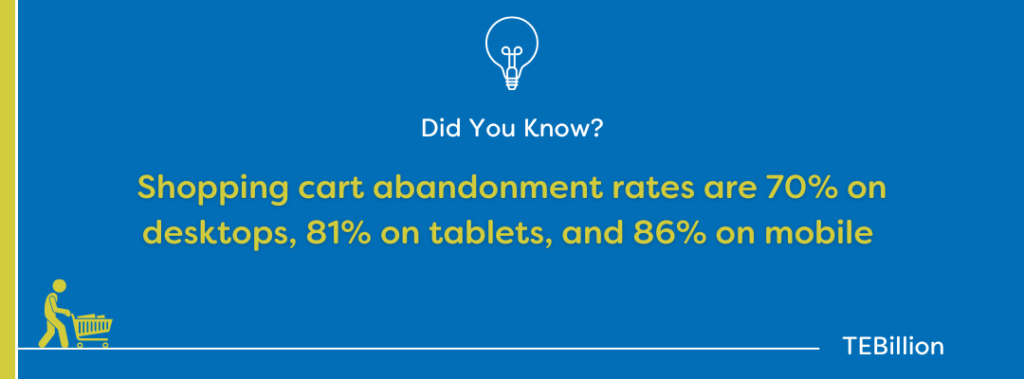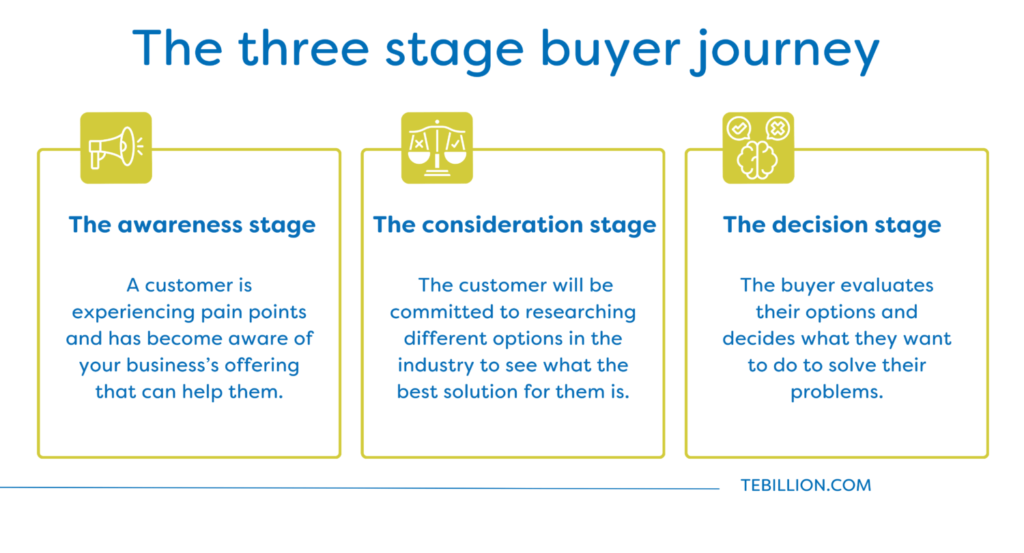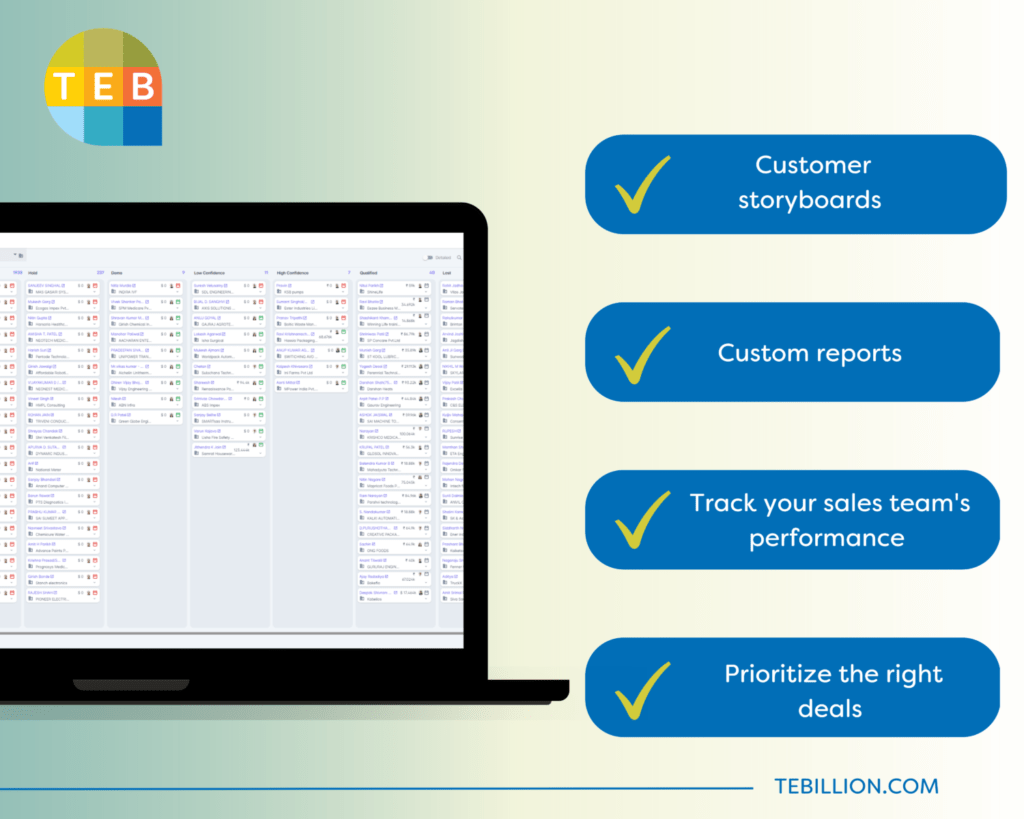
Shopping cart abandonment rates are high across all devices, with Baymard Institute sharing that the cart abandonment rate is 70% on desktops, 86% on mobile and 81% on tablets. But how can you affect this? By understanding your buyers journey. In this article, we will look at what the buyers journey is and how you can map it to get a better understanding of your sales process and win more deals.

The buyer’s journey is the path that a customer goes on when they are going to make a purchase from your business. The buyer’s journey will consider the full process a customer will go through when making a purchase. The three stages that a customer will go through on their buyer journey are:

This is the stage where a customer is experiencing pain points and has become aware of your business’s offering that can help them.
To understand the awareness stage, you should consider:
During this stage, the customer will be committed to researching different options in the industry to see what the best solution for them is. To be successful in this stage, you should ask yourself these important questions:
How do customers educate themselves on the solutions they have? – You must consider how customers will get information about their options before they conclude. For example, if you identify your customers will look at different websites of the companies they are considering buying from, ensure your website clearly expresses your unique selling point and is user-friendly.
What is important to customers at this stage? – Whether it is the price, value or functionality of your offering, identify what will attract customers to you. You need to be aware of what your competitors are offering to differentiate yourself.
The last stage of the buyers journey is the decision stage. The customer will have weighed up their options and will now decide if they will purchase a product or service.
Once a decision is being made, you must consider:
Who is involved with the decision? – It is important to identify how many decision-makers and stakeholders are in the deal that could sway the decision that is made.
Why is this decision being made? – Whether you have won or lost a deal, you should consider why the customer has come to this conclusion for future reference to guide your sales team.
After a sale has been completed, many businesses think the buyer journey ends. However, this is not the case. The buyer journey continues as you can now focus on customer retention and gaining referrals for your business. Creating a long-term customer relationship as can boost your revenue and grow your business.
To ensure you understand your customers’ buyers journey, you must better understand your customers through extensive research:
You will get invaluable benefits from understanding your customers’ buyer journey, such as:
More strategic marketing – You will be able to market more strategically to align yourself with the customer’s wants and desires by mapping your offering to their pain points.
Anticipate your customer’s next steps – You will be able to anticipate your customer’s next steps by understanding their buyer journey, helping you keep the sales process efficient and be prepared for objections.
Want to get a whole new understanding of your customer’s buyer journey with exceptional data visibility? If the answer is yes, then TEB Apps is the software for you. TEB Apps is a sales automation CRM software that will enhance your understanding of your customer’s buyer journey and streamline your entire sales process. TEB Apps will improve your data visibility and help grow your business with these key features:

Want to see these features for yourself? Quickly book a demo and see how TEB will increase your sales, generate you more revenue and drive your growth.
